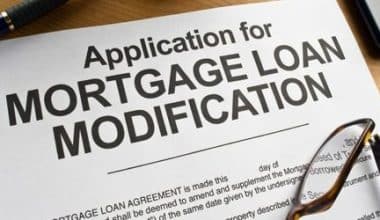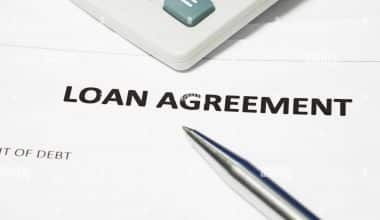Commercial loans are lines of credit designated for a specific cost or objective of a business. Your company’s eligibility will determine the interest rates you will receive for commercial real estate loans
Commercial Loans
You can use commercial loans to support business operations. Any type of loan given to a company rather than an individual is a commercial loan. Commercial loans can help businesses get more money, which can help them grow and make more money. Term loans for property, plant and equipment (PP&E) are two examples of such financing.
The vast majority of commercial loans are given to legal entities like corporations and partnerships, though there are a few exceptions, such as real estate owned by an individual. Personal loans typically have much simpler credit structures than commercial loans.
Using physical assets as security for business loans is a common practice. Sometimes lenders request collateral as security for commercial loans. Collateral adds an extra layer of security for lenders because it gives them the power to seize your assets if you are unable to pay back the loan. Collateral commonly takes the form of bills, receivables, real estate, equipment, and more.
Understanding Commercial Loan Structure
Most lenders don’t offer credit forever or without requiring that the money being advanced be used for something very specific. The term “loan structure” (also known as “credit structure” by bankers) refers to this. No matter whether the exposure is underwritten by a company’s business banking division or its commercial real estate lending team, commercial loan structures are frequently determined by predetermined credit policies.
Types of Commercial Loans
Commercial loans typically come in the form of lines of credit, term loans, and commercial mortgages.
#1. Lines of Credit
A LOC (often called a “revolver”) supports the working capital cycle for businesses that sell on credit terms. There is no set schedule for repayment; instead, it is designed to fluctuate up and down in response to changes in the company’s working capital account balances.
#2. Term Loans
You can use these loans to purchase non-current assets like furniture, vehicles, and machinery. Term loans typically amortize, or pay off over time, typically in monthly installments. There will already be a repayment schedule in place between the lender and the borrower at the time of the loan advance. The loan repayment schedule usually coincides with how long the borrower will use the underlying asset.
#3. Capital Leases
Similar to term loans, capital leases—also known as “finance leases”—are used to finance non-current capital assets like machinery. The primary distinction between a capital lease and a term loan is that the tangible asset remains legally owned by the equipment financing company throughout the lease.
#4. Commercial Mortgages
Commercial mortgages are a type of alternative lending that is solely used to finance (or refinance) commercial real estate. Both types of loans have terms that are typically more flexible than those of other commercial loans (longer amortization, more favorable LTVs, very competitive pricing, etc.), regardless of whether the property is an owner-occupied or income-producing investment property.
#5. Acquisition Loans
An additional type of commercial loan is an acquisition loan. Instead of tangible assets like real estate or machinery, these are used by companies that acquire other companies (or different business divisions). Although this isn’t always the case, acquisition loans typically have lower loan-to-value ratios and shorter amortization periods than other commercial loans.
#5. Bridge Loans
A bridge loan is a brief, first mortgage loan on real estate for businesses. The duration can range from six months to three years. In general, the interest rates on bridge loans are much higher than those on long-term loans. Businesses and homeowners who need money to buy a property but are also waiting for the sale of another property frequently use them.
#6. SBA Loans
Loans made to owners of commercial real estate by private lenders like banks and specialty finance firms, but which are largely backed by the SBA. Congress established SBA loan guarantees to promote the establishment and expansion of small businesses.
The Commercial Loan Process
Loan origination is the process by which the relationship team searches for potential borrowers. The team of lenders (which includes the relationship manager and the credit analyst) focuses on client discovery and credit structure to comprehend the state of the company, its specific borrowing requirements, and potential deal structures and prices.
The team begins analysis and underwriting after securing the client’s agreement to proceed with a formal credit application. The proposed credit structure now requires final approval from the bank’s adjudication group (also known as the credit committee).
Once the deal has been approved, the loan agreement has been signed, and the lender’s attorney has correctly registered any liens against the business and its assets, documentation and perfecting security can then begin. And lastly, the loan is advanced, allowing the borrower to access the loan proceeds.
Commercial Loans Rates
For commercial loans, your company’s eligibility will determine the interest rates and repayment terms you receive. Term loans make up the majority of business loans and have set monthly payments for a predetermined period. A lot of businesses can select their repayment period, which can be anything from one year to 25 years or even longer in some circumstances.
Most small businesses can get a commercial loan from a bank, credit union, or online lender. Your company will qualify for a range of interest rates, fees, funding amounts, and terms depending on the types of commercial loans, your creditworthiness, your financial situation, and your goals.
Commercial loans might have more requirements, but they usually have interest rates that are lower than those for other business loans. Commercial lenders might be interested in learning how you plan to use the funds, your business’s projected growth, how much you make before taxes, and other information.
What Is the Minimum Down Payment for a Commercial Loan?
If you have to put up collateral or pay a minimum down payment for a commercial loan, it depends on the type of lender you work with and your financial history. As a result, they might need a down payment or some sort of collateral. The minimum down payment for business loans typically ranges from 0% to 25%. The actual goods themselves will typically act as collateral if you’re buying real estate, cars, or other equipment. In the absence of that, you might need to pledge additional commercial assets or even your assets. Not every lender will adhere to these guidelines.
Commercial Loan Requirements
To be eligible for a commercial loan, you must have good credit, provide some form of collateral, contribute 25% or more of the purchase price, and intend to use the financed property primarily for your own business.
Commercial Loans Real Estate
An option for financing the purchase of a real estate for commercial use is a commercial real estate loan. You must have good credit, put down 25% or more, and intend to use the majority of the financed property for your own business to qualify for a commercial loan.
The purpose of commercial real estate loans is to provide money for the acquisition or renovation of real estate for your own company’s use. You must use the majority of the property serving as security for the loan for your own business to qualify for a commercial loan.
Loans for a commercial real estate typically have a term of five to ten years. Loan amortizations can frequently last up to 25 years, though they are typically much longer.
Types of Commercial Loans for Real Estate
- Those with a history of banking relationships are eligible for bank-term loans.
- SBA loans: For company owners who have already attempted to obtain a loan from a conventional bank. Usually, a credit score of 660 or higher is necessary to be eligible for an SBA loan. The minimal score for SBA 504 loans is typically 680.
- Individuals who already own property and wish to borrow against their equity may do so through a line of credit.
- Portfolio loans: It’s important to remember that landlords who own a variety of properties that they rent to tenants frequently use these loans. These loans have different rates, terms, and eligibility requirements because lenders view them as more speculative activities. Before discussing portfolio loan options with a lender, make sure they are aware of any properties your company owns and uses for its own needs.
Commercial Real Estate Loan Requirements
There are three main categories of loan eligibility requirements:
#1. Security
Your lender will inquire as to whether the loan is adequately secured by the asset you are using as collateral before approving it. This means that to qualify, you will typically need to have between 25% and 30% equity in the property you wish to purchase.
Your lender will also want to confirm that you have enough property insurance to guard against damage to the asset serving as collateral. To ensure there are no unpaid liens or other claims against the property, the lender will also perform title work on the property and review the deed.
#2. Income
Lenders look for a healthy income-to-expense ratio when processing your application so they can be sure you can afford to pay back your loan on time each month. Your debt-service coverage ratio (DSCR) is one factor that lenders consider when making this decision. The minimum DSCR varies depending on the asset you’re using as collateral, but most lenders prefer a DSCR of 1.25 or higher.
Since you’ll be borrowing the money for business purposes, you’ll typically need to provide two years’ worth of tax returns to your lender to prove your income. Additionally, a personal guarantee must be signed.
#3. Credit
Your lender will probably want to look at your business credit score if you’re applying for a loan for real estate for your company. However, lenders will typically also require a personal guarantee from you, in which case they will also want to check your credit.
For the majority of conventional loans, the required credit scores range from 660 to 680, depending on the lender.
To evaluate your credit risk, lenders will also want to know how long you have been in business. You must typically have been in operation for one or two years to be eligible for a commercial loan.
What Are the Most Common Commercial Loans?
- Lines of Credit
- Term Loans
- Small Business Administration (SBA) Loans
- Bridge Loans
What Are the Benefits of a Commercial Loan?
- Fixed repayment schedules provide you with greater predictability.
- Because large banks finance these loans, there are fewer costs.
- Speedy approval process
- A broader selection of financing options than traditional loans
- You frequently don’t need to provide any collateral to get a commercial loan, which means that you can get one without it.
- Commercial loans have the lowest interest rates of any type of loan, allowing business owners to access necessary capital while keeping overhead costs to a minimum.
Who Can Take a Commercial Loan?
Your capacity to pay back the loan determines whether or not you are eligible for a commercial loan. Lenders will focus on several variables to assess your eligibility. In addition to having a strong cash flow history, having a high credit score is crucial. You can describe your objectives and success plan in a business plan. Be sure to specify why you require the funds, how much money you will require, and how you intend to respond if the worst occurs.
What Is the Difference Between a Business Loan and a Commercial Loan?
Loans for small businesses typically have lower funding levels, whereas loans for commercial purposes typically have higher funding levels given to medium-sized and larger businesses. A lender, such as a bank or another financial institution, must give its approval before providing a commercial loan to any company.
Conclusion
Commercial loans are essential to assisting your company in growing and moving forward. They also offer plenty of resources to weather financial difficulties and stay one step ahead of the competition.
Commercial Loans FAQs
What Are Commercial Loans?
Commercial loans are lines of credit designated for a specific cost or objective of a business. Any type of loan given to a company rather than an individual is a commercial loan.
What Are The Benefits of Commercial Loans?
- Speedy approval process
- A broader selection of financing options than traditional loans
- Fixed repayment schedules provide you with greater predictability.
What Are the Most Common Commercial Loans?
- Lines of Credit
- Term Loans
- Small Business Administration (SBA) Loans
- Bridge Loan
Related Articles
- COMMERCIAL REAL ESTATE LOAN: Overview & Requirements
- LOANS FOR COMMERCIAL PROPERTY: Types & How To Obtain One
- COLLATERAL LOAN: Meaning & What You Need to Know
- COMMERCIAL REAL ESTATE INVESTING: What It Entails and How to Start Up Investing
- COMMERCIAL REAL ESTATE LOANS: Types, Rates and Requirements
- ONLINE LOANS: BEST OPTION TO LOOK OUT FOR (+ HOW TO APPLY GUIDE)






